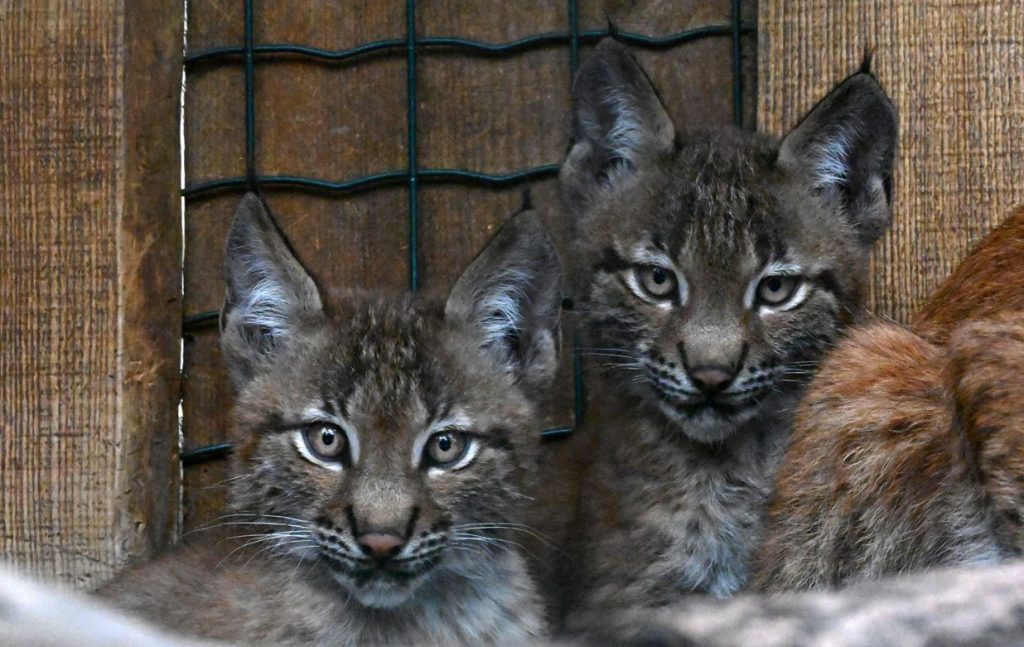Today, on May 27, the lynxes of the Riga Zoo – a girl and a boy – celebrate the three-month anniversary and in honor of it – both received the most valuable gift – the words given by the residents of Jēkabpils region Demija a Rems.
–
The news
Leave without money: thousands of euros disappear from the accounts of several people
14 hours
–
The news
In Latvia the highest number of Covid-19 cases was found in three cities
10 hours
–
Cocktail
This day promises a variety of pitfalls and failures… Horoscopes for August 27
12 hours
–
They will then also be entered in the international register of European lynx pedigree (ESB) and the chairman of Jēkabpils district council Raivis Ragainis will take a special godfather’s certificate to Jēkabpils. The words were chosen from more than 200 suggestions, and the ones that started with “D” and “R” were preferred in the evaluation, as these are also the first letters of the names of the Lusen parents Dadze and Ruby.
The appearance of the notorious lynx in the world this year was a surprise, because the 10-year-old lynx Rubin, a “veteran” of the Riga Zoo, was introduced to Dadzi, a less than 3-year-old lynx, only last winter. Apparently, Ruby, the father of 10 lusens, knows how to seduce. Then a special gift from the Sports Club “Jēkabpils Lūši” – a volleyball ball – will be very useful for young people.
The cooperation between the Riga National Zoo and Jēkabpils has been going on for more than 8 years and is quite natural because the city’s coat of arms is decorated with lynx. The residents of Jēkabpils have previously given quite loud names to lynxes born at the Riga Zoo – Jakobīne, Hercogs, Jete, Lucija, Amber, Jēkabs, Jākobs… One of the lynxes – Duke now lives in the Kobe Zoo in the twin city of Riga, Japan. The rest have ended up in various foreign zoos, as well as in Poland, where a lynx restoration program is being implemented with the support of the World Wildlife Fund.
In many parts of Europe, the Eurasian lynx (Lynx lynx) and, including its Latvian subspecies, the northern lynx (Lynx lynx lynx), are seriously endangered in the wild and it is very important to keep them in captivity, so since 2002 all data on lynx in zoos and elsewhere in captivity are compiled in the European Lynx Pedigree (ESB). The newly established Riga Zoo lynx pair has no relatives in European zoos, which makes the possible offspring of this lynx pair especially valuable within the framework of the European lynx species conservation project. Lūsi Rubina was once found in a yard of Vidzeme house, while lūsi Dadzi was brought from Viļaka forests to the zoo by foresters. In total, after participating in the lynx breeding program for 20 years, lynx born in Riga and the Riga Zoo branch “Cīruļi” have been sent to zoos in Estonia, Lithuania, Scotland, Finland, Spain, Hungary, Ukraine and elsewhere. Conservation of endangered species in captivity is a rather complicated process, the aim of which is to preserve in captivity a set of genetically complete specimens of endangered animal species.
The Riga National Zoo reminds that the lynx is not and should not be a pet, as these animals are only allowed in registered collections (zoos) and the lynx is listed in Appendix II of the Washington Convention (CITES), which restricts international trade in wildlife, as a species whose existence may be endangered without strict control of international trade in those animals and parts and derivatives.
Video story with little carefree lynxes here:
Themes
–


